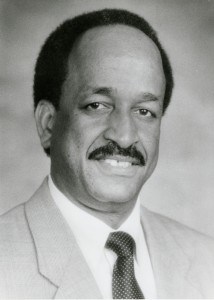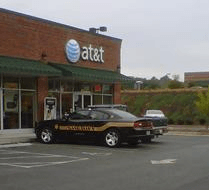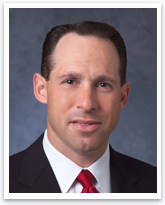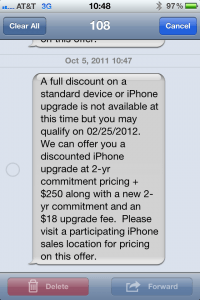
Crumpton
NAACP national board member and former Missouri Public Service Commission member Harold Crumpton believes that combining AT&T and T-Mobile will create 100,000 new jobs, despite the fact both companies have promoted “cost savings” from eliminating redundant services and winning “increased efficiencies.”
That’s code language for layoffs, and it has been that way with every telecommunications merger in the last decade. But Crumpton prefers to deny reality in a guest opinion piece published today in the St. Louis Post-Dispatch:
Most mergers result in — and pay for themselves with — job losses and higher prices. Not this one.
If, to use the government antitrust lingo, there is a “relevant product market” for this merger, it would be “jobs” because jobs are the No. 1 product of the broadband factory. The AT&T and T-Mobile merger is structured as an engine of job creation — yielding 100,000 new jobs by delivering on President Obama’s call for a national high-speed broadband network. That’s far more jobs than would be lost because of AT&T and T-Mobile overlaps.
Ironically, AT&T announced the repatriation of 5,000 call center jobs and pledged not to terminate call center employees because of the merger. Two hours later, without warning to AT&T, the Justice Department filed its suit. Suffice to say that President Obama, our greatest champion of job creation, was not well-served that morning.
How will AT&T produce all these new jobs? By creating the first national next-generation high-speed (4G) mobile network. The merger is what will make the network possible, and it will do that by aggregating and redeploying spectrum T-Mobile can’t use for 4G. In this way, the network would reach 55 million more Americans than 4G currently reaches.
AT&T couldn’t have argued the case better. Oh wait. They have, in the company’s advocacy package mailed to the NAACP and dozens of other groups who receive the company’s financial support. Those talking points inevitably end up in the guest editorials penned by Crumpton and others.
While the bloom is clearly off the rose of the AT&T/T-Mobile merger, thanks in part to consumer groups and the U.S. Department of Justice who filed a lawsuit to stop it, AT&T is still flailing about trying to find some way to get the deal done, if only to avoid the outrageous break-up fee self-imposed by the telecommunications giant if the deal falls apart. AT&T’s promise to bring an end to the obnoxious practice of offshoring their customer support call centers — if the merger gets approved — has been compared with blackmail by some customers who have spent an hour or more negotiating with heavily accented customer support agents that companies like Discover Card routinely mock.

AT&T promises customers a solution to the "Peggy Problem" if their merger with T-Mobile gets approved.
It clearly wasn’t enough to move critics of the deal to reconsider — AT&T could voluntarily hire American workers who speak the language of their customers for the benefit of those customers with or without a merger with the fourth largest wireless carrier in the country.
Crumpton argues President Obama was not well served by the Justice Department. Consumer groups argue T-Mobile and AT&T’s customers will not be well-served if this merger ever happens.
As Stop the Cap! has repeatedly argued, both AT&T and T-Mobile will construct 4G mobile broadband networks in all of the places where the economics to deploy those networks makes sense. No more, no less, no matter if AT&T and T-Mobile are two companies or one.
Crumpton might as well have argued the merger would deliver 4G service to Sprint customers as well. It’s the same disconnected logic.
Crumpton thinks AT&T’s high-priced, heavily-capped 4G network will somehow solve the pervasive problem of the digital divide — the millions of poor Americans who can’t afford AT&T’s prices. Incredibly, Crumpton’s answer is to allow one of the most price-aggressive, innovative carriers in the country favored by many budget-conscious consumers to be snapped up by the lowest rated, if not most-hated wireless company in the country.
It just doesn’t make sense. But it does make dollars… for the NAACP, which receives boatloads of corporate money from AT&T. It’s no surprise the pretzel-twisted logic that drives merger advocates like Mr. Crumpton comes fact-free. The money makes up for all that.
“The NAACP stands ready to work with the public and private sectors to ensure that every American has an equal opportunity to participate in and benefit from this awesome ‘broadband revolution,'” Crumpton writes.
We can only hope that is true. The NAACP can get started by admitting publicly it receives substantial support from AT&T and it will either agree to remain neutral in corporate advocacy issues to avoid conflicts of interest, or return AT&T’s money. After all, it sounds like they need it to build the digital divide-erasing 4G network Crumpton is purportedly so concerned about.


 Subscribe
Subscribe







